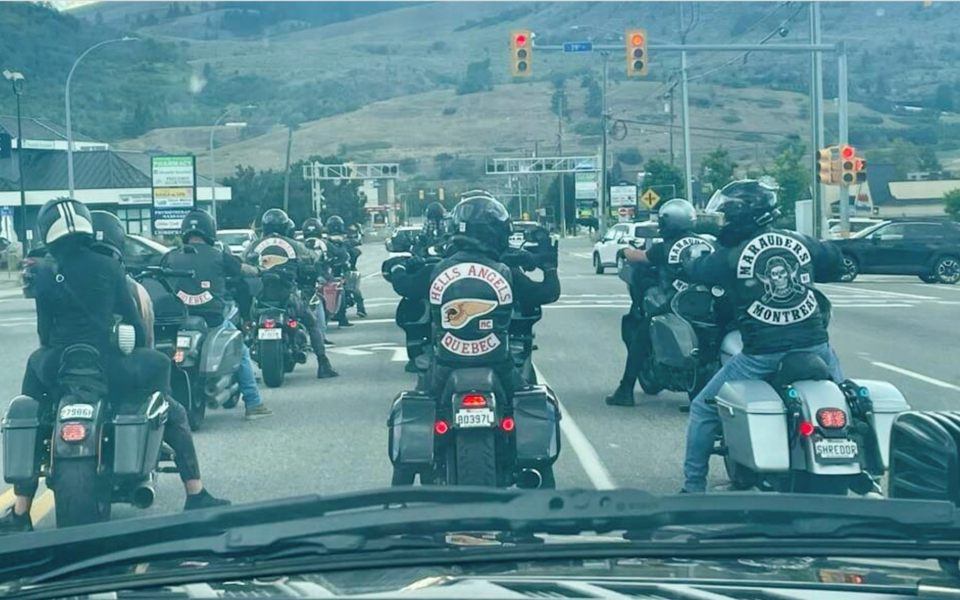A reported member of the Hells Angels motorcycle club who U.S. authorities want extradited to stand trial for his alleged role in a major criminal stock fraud scheme says his charter rights were violated by B.C. police.
On the first day of his extradition hearing in a Vancouver courtroom Monday, Courtney Vasseur argued, via his lawyer Paul McMurray, that a photo of Vasseur filed as an exhibit by the Federal Bureau of Investigation (FBI) and U.S. Attorney’s Office was taken in Canada by police contrary to privacy laws.
As such, McMurray is asking Supreme Court of B.C. Justice Catherine Wedge to weigh in on the photo’s admissibility, with an application to exclude evidence.
McMurray suggested to the judge the first step is to determine if the photo was “gathered” in Canada.
If so, it’s understood McMurray would then argue the photo to be inadmissible because police violated Vasseur’s privacy and under the Extradition Act any evidence gathered in Canada must be in accordance with Canadian law.
Both sides agreed the FBI got the photo from a 2014 Vancouver Sun article that reported Vasseur was charged with possession of a controlled substance for the purpose of trafficking — a charge that Vasseur was eventually found not guilty of on Sep. 21, 2017.
Where the photo originated from appears to be contested, with the possibility it was either provided to the Sun by the Combined Forces Special Enforcement Unit-BC, a provincial integrated anti-gang agency, or the Sun took the photo.
“We do not have any evidence of how this photo ended up on the Vancouver Sun,” said Ryan Dawodharry, counsel for the Attorney General of Canada.
McMurray noted that a B.C. police officer has testified they took Vasseur’s photo at the club’s East End clubhouse in Vancouver, in 2012. And by doing so and then allegedly sharing the photo, this violated Vasseur’s reasonable expectation of privacy.
But before the debate even reaches that point Dawodharry suggested the evidence was not gathered in Canada, as asserted by McMurray; rather the FBI simply found the photo online.
The importance of the photo appears to be that, according to Dawodharry, a confidential witness is prepared to testify against Vasseur in New York and the photo helps to identify Vasseur.
The judge is expected to rule on the admissibility of the photo before the multi-day hearing concludes.
Vasseur sat in court alongside alleged co-conspirator Curtis Lehner, a former stockbroker who worked in sales at Eron Mortgage Corp.
Vasseur and Lehner are charged in the U.S. with multiple counts of criminal securities fraud, conspiracy to commit securities fraud, wire fraud, conspiracy to commit wire fraud and conspiracy to commit money laundering for their part in a set of alleged fraud schemes involving over US$1 billion in illegal trading.
Vasseur's network, including Lehner and Domenic Calabrigo, is alleged to have generated US$35 million in illicit proceeds alone.
The alleged scheme used a global network of shell companies to conceal beneficial ownership of company shares and trades. The U.S. Securities and Exchange Commission stated the network’s “mastermind” was former Vancouver lawyer Fred Sharp, who also faces criminal fraud charges in a separate indictment. There are no extradition proceedings against Sharp.
Sharp, of West Vancouver, has been found liable in a civil case against him and ordered to pay disgorgement and prejudgment interest of US$28,934,433 and a civil penalty of US$23,990,781. Sharp is now barred from future trading in U.S. and Canadian stocks.
Vasseur, dubbed "Arctic Shark" by associates, allegedly worked with Sharp in orchestrating the “pump and dumps” of penny stocks, according to a related civil claim brought by the SEC on April 14, 2022.
For example, U.S. officials allege Vasseur manipulated the stock of a Nevada shell company called Bingo Nation Inc., which purported to be offering televised bingo games. And it was Sharp and Lehner who are said to have controlled the corporations used to conceal Vasseur’s ownership of shares in Bing Nation.
None of the allegations against Vasseur and Lehner have been proven in court.

